
Overview
The Sustainability Action Fund (SAF) supports projects and initiatives that improve sustainability at the University of Waterloo. Project funds are distributed based on a call for applications, with successful applications determined by the President’s Advisory Committee on Environmental Sustainability (PACES).
Projects should be directly aligned with at least one of the objectives of the University of Waterloo's Environmental Sustainability Strategy or any of its connected action plans.
Special streams
For Fall 2025, PACES will be funding two types of projects:
General Sustainability Projects
PACES welcomes and encourages creative ideas from across campus with a specific emphasis on making progress towards the University's sustainability goals. The General Projects stream may support any campus goal, and be requested by any eligible student or employee. Applications for Fall 2025 may request $2,000 - $20,000 under this stream.
Student Innovation Projects
There are five (5) grants of up to $2,000 each to support student projects. To be eligible, projects must:
- Be part of a student project connected to the university through academics, co-curricular programs, or entrepreneurship (Velocity, GreenHouse, etc.)
- Support a goal in the Environmental Sustainability Strategy
- Consider logistics and long term feasibility on campus
Application timelines
Applications for Fall 2025 open on September 29th, and will use the following timelines.
| Step | Timing |
|---|---|
| Applications open | September 29th |
| Final day to request application | October 17th |
| Applications due | October 24th |
| Final decision from PACES | Week of Dec 1 |
| Project implementation | Immediately upon approval |
| Updates and final reports | Termly and upon completion |
Process
To ensure effective and efficient review of all applications, the following process will be followed:
- Request an application form: Anyone interested in applying to SAF will need to request an application form with a high-level summary of the project, once applications open. The Sustainability Office will reply with the application form.
- Submit your application: Fully complete the application and send to the Sustainability Office (sustainability@uwaterloo.ca) before the application deadline noted above.
- PACES initial review: A working group of PACES will provide initial review to ensure completeness, clarity, and appropriateness. This may involve email correspondence or a virtual discussion with the applicant.
- Corrections: Any corrections or modifications requested by the PACES working group will need to be completed and the updated Application Form sent to the Sustainability Office by the deadline noted above.
- PACES approval: PACES will make a final determination on project funding and notify successful and unsuccessful applicants.
Details
Project amounts: For the Fall 2025 round of funding, applicants can request up to $2,000 for student innovation projects, and between $2,000 - $20,000 for individual projects.
Eligible applicants: Any University of Waterloo student, staff, or faculty member can submit a project proposal.
Project reports: All successful applicants will be required to maintain a project management document and submit a project completion report to PACES at the culmination of the project, detailing the project outcomes, including successes, challenges, and how funds were spent.
Active projects
There are a number of projects actively underway, including:
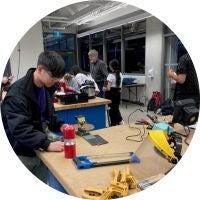
4RepairUW
Building off historical pilots of repair cafes, this project will restart efforts to offer repair services for personal items across campus. SAF funding will support tools and materials to host repair services and education events throughout 2022/23. Led by 4RepairKW (winter 2022)
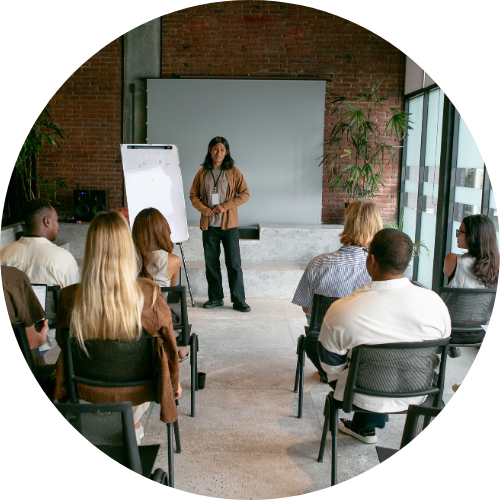
Accelerating climate education
This project seeks to support and advance sustainability and climate change teaching and learning at the University of Waterloo. The Waterloo Climate Institute will establish a working group, develop teaching tips, run professional development sessions, and host a curriculum retreat. Led by Waterloo Climate Institute (spring 2025).
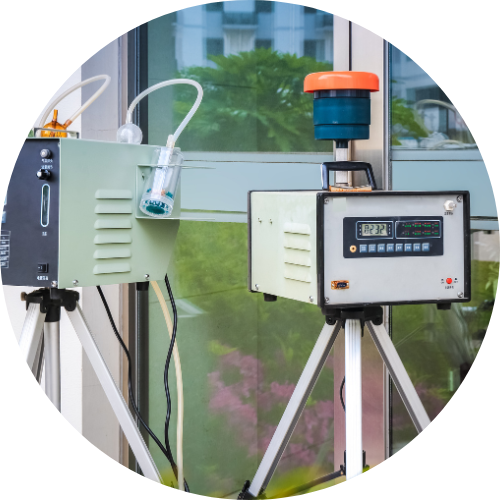
Campus air monitoring
Building off a project supported in 2024, this project supports the purchase of supporting sensors (traffic monitors) and equipment (e.g. solar panel and battery), installation, and services. Data collected can increase air quality and emissions awareness and education, both on campus and in the larger community. Led by Waterloo's Global Environmental Measurement and Monitoring hub (spring 2025).

Climate Anxiety Workshop
This project seeks to address climate anxiety in students, staff and faculty at Waterloo. The project aims to provide a collaborative workshop series and resource that addresses climate anxiety, builds community, and hope for the future. Led by the Waterloo Climate Institute (spring 2024)

Facilitating community climate leadership
Historically there has been limited high-level coordination across sectors of the community on climate action. This project would be based on convening a 1-day workshop/event for senior leaders from across different sectors in Waterloo Region, with a goal to catalyze further climate action. Led by the Sustainability Office (fall 2025).

GHG & Air Quality Monitor
This project supports the installation of a green house gas and air quality monitoring device to measure CO2, NO, NO2, O3, CO and PM2.5 in real-time. The data will be publicly available and can be used to increase visibility of the impact of air quality on climate and health or allow deeper engagement with climate data through student projects and research. Led by Waterloo's Global Environmental Measurement and Monitoring hub (spring 2024)

Grassroots KW
This student innovation project aims to increase accessibility of climate initiatives for youth in the Kitchener-Waterloo region. Through research-informed strategy, this project will build a community for youth climate action, particularly for those who care, but are not yet involved. Led by GrassrootsKW (fall 2025).
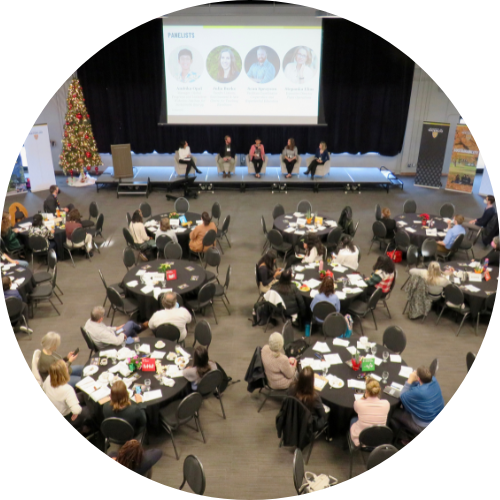
Green Skills Gap
This project will host a one-day event with high profile speakers who will address the green skills gap and how it is impacting progress on climate change and sustainable transitions; how existing jobs are changing; jobs that will disappear and be created; and how employers and employees should prepare. Led by the Faculty of Environment (spring 2024)
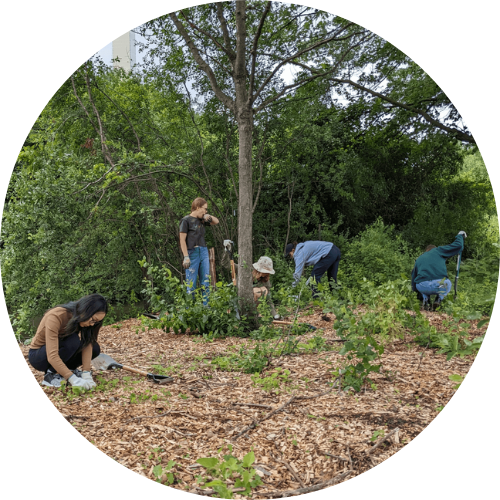
Invasive Plant Removal
This project supports the removal of the invasive common buckthorn from the Environmental Reserve to improve biodiversity and habitat for wildlife. Led by the Department of Biology (spring 2024)
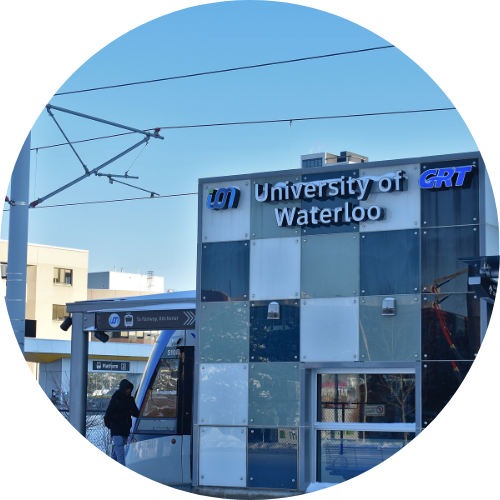
Moving forward: Mapping mobility for a more sustainable campus
This project will augment city datasets with AI-assisted, privacy-preserving traffic sensors and app-based micro-mobility tracking to measure pedestrian, cycling, e-scooter, and vehicle patterns, revealing opportunities to make campus transportation more sustainable overall. Led by the School of Planning (fall 2025).
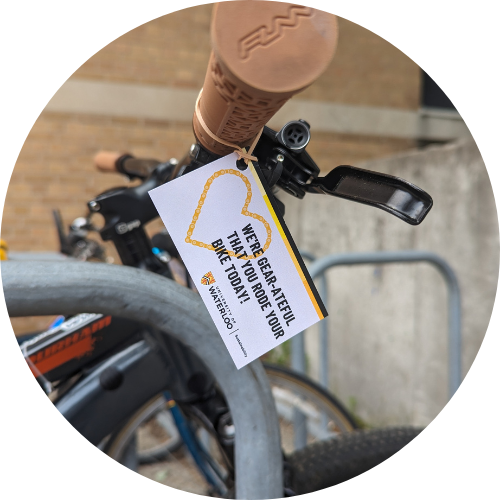
Project 529 Bike Registry
This project supports the purchase of an annual software subscription and shield stickers for Project 529, an online bike registry, to help deter theft and aid in recovery of bikes. Led by Sustainable Transportation (spring 2024)
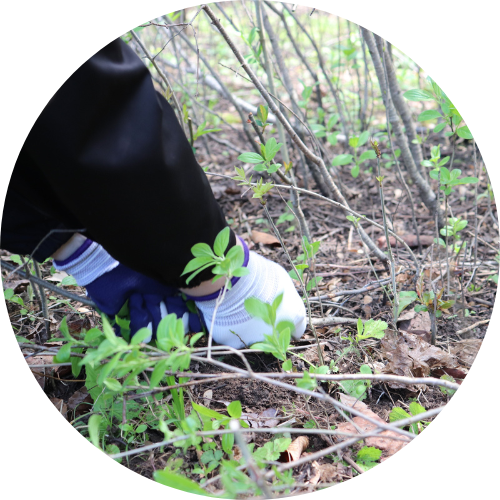
Pyroneers
This student innovation funded project turns invasive common buckthorn into biochar. This project offers an opportunity to augment ecological restoration efforts in urban settings where invasive species persist. Additionally, the goal is to build workshops that can be given to high schools or university classes. Led by environmental engineering students (fall 2025).
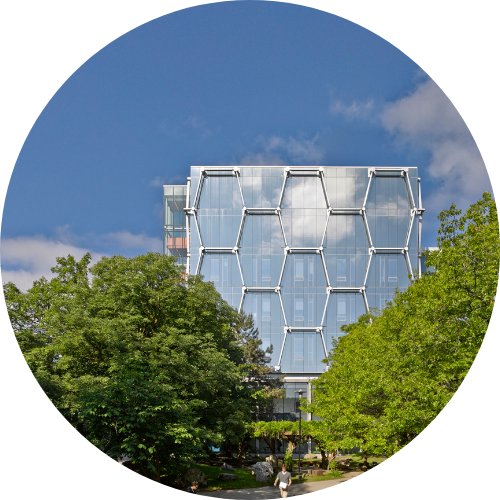
QNC Bird-Window collision and monitoring
This project will install external anti bird-collision decals on the first and second floor windows of QNC, the area identified as the highest collision risk on campus. Birds are a necessary and vibrant part of a thriving ecosystem, and this project will prevent endangered migratory bird mortality. Led by the Department of English Language and Literature (fall 2025).
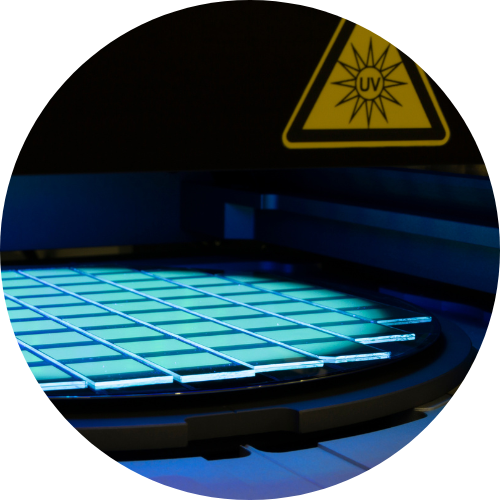
QNFCF mercury recycling
The QNFCF lab uses a UV lithography patterning tool that uses mercury-arc lamps as a light source. By replacing the mercury-arc lamp with a UV LED lamp kit, it would eliminate waste from mercury-arc lamps, from optical components damaged by constant UV exposure, and will eliminate the need for nitrogen gas to cool the lamp housing. Led by QNFCF (spring 2025).
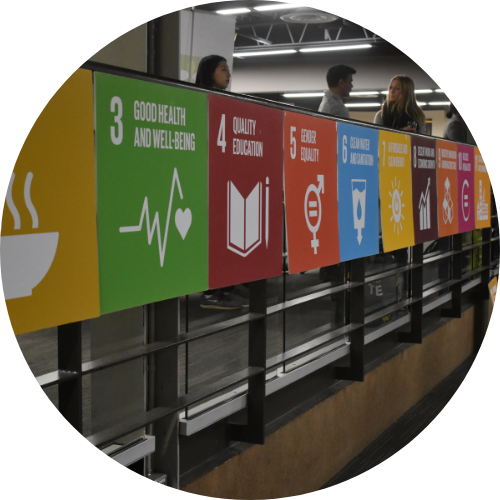
Sustainable Impact Summit
This project will support the Sustainable Impact Summit that will promote sustainability efforts in the Kitchener-Waterloo region and offer financial support and mentorship to initiatives led by University of Waterloo Students. Led by Sustainable Impact Summit (spring 2024)
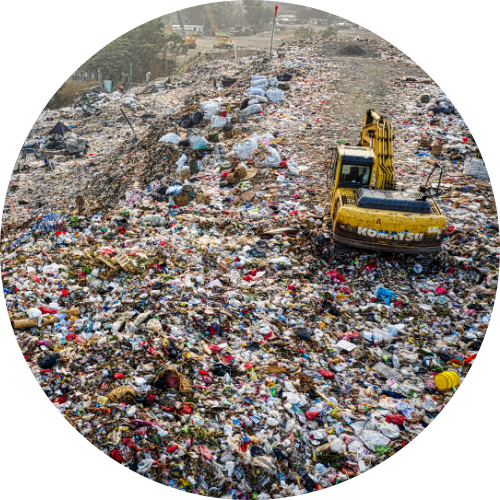
Wally
This student innovation project will pilot their mobile app “Wally” that helps users dispose of waste correctly using AI-powered item scanning and localized waste rules. This project will test the app’s usability, clarity, engagement and scalability. Led by engineering students (fall 2025).
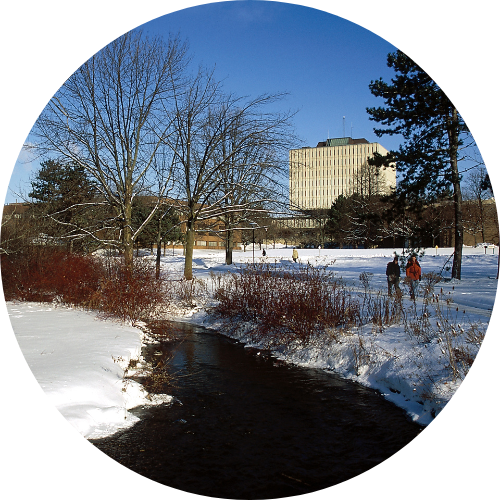
World Water Day & Workshop: Water sustainability for all
World Water Day 2026 will bring together students, faculty, staff, and community partners to explore the theme of sustainable water security for all through research, dialogue, and action. The event will strengthen teaching and learning connections to sustainability by featuring a keynote speaker who addresses water equity and challenges relevant to the UWaterloo community. Led by the Water Institute (fall 2025).
Completed projects
More than 40 projects have been completed since the Sustainability Action Fund launched in 2017, including:
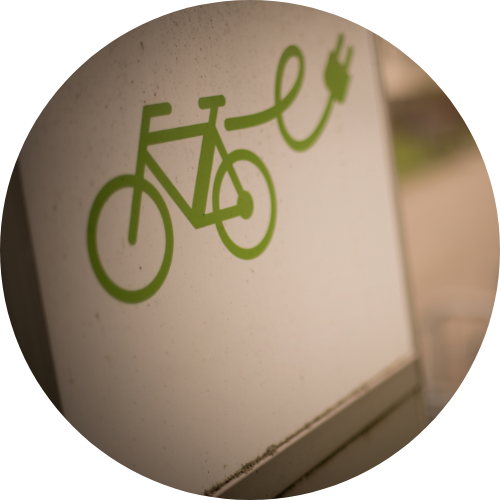
Sustainable Transportation Fleet
This project is a pilot to test the feasibility of using cargo e-trikes with trailers for plant operations staff to transport heavy materials across campus instead of using gas powered vehicles. Led by Campus Services (spring 2024)
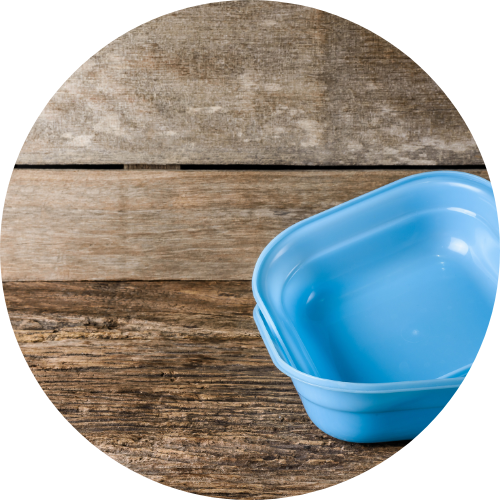
Renison reusable containers
Increasingly, students are eating in their rooms or off-campus due to busy academic schedules and accessibility needs. This project supports the introduction of reusable, washable eco-containers to the Renison dining hall to address growing sustainability and accessibility challenges. Led by Renison University College (spring 2025).

Helium Recovery System
This project will combat the high demand of helium for the superconducting nuclear magnetic resonance spectrometers by using a helium recovery system to collect the daily boiled-off helium and reliquify to refill the spectrometers as needed. Led by the Nuclear Magnetic Resonance Facility (spring 2024)

United College water bottle refill station
This project the installation of water bottle filling station at United College, on the first floor of United College, filling an existing gap, identified through space studies and student surveys. Led by United College (spring 2025).

Deionized Water System in DWE
This project supported the upgrade of an old, inefficient deionized water (DI) system with a sustainable reverse osmosis system, providing steady and environmentally conscious DI water for undergrad teaching labs in DWE. Led by Chemical Engineering (fall 2023)

Eco-Mug Campaign
This project improved waste reduction by offering free Fairtrade coffee and tea for one week across all UW Food Service-operated cafes and eateries (non-franchise) with the use of an eco mug to build sustainable habits and reduce single use waste. Led by Food Services (spring 2024)

Alternative Protein Project
This project will support educational events and tours, outreach activities, and a pilot course to increase awareness of the alternative protein industry and avenues for students to contribute, personally and professionally. Led by the Alternative Protein Project group (fall 2023)

Food Garden Pilot
This project supported local food systems through the installation of 10 food garden plots on main campus, which continues to be available to rent by students, staff, or faculty members for the annual growing season. Led by the Sustainability Office (fall 2023)

Menstrual Equity Project
This project supported menstrual equity on campus by providing sustainable, reusable menstrual products in place of disposable options, significantly reducing waste sent to landfill and providing accessible and equitable alternative to campus community members. Led by the Office of Equity, Diversity, Inclusion and Anti-Racism (fall 2023)

Advancing Climate Teaching & Learning
This project supported the advancement of climate change teaching and learning through a climate pedagogy symposium and supplementary resources for faculty members, and a student-focused climate conference and workshop series. Led by the Waterloo Climate Institute (fall 2023)

Expanding Electric Lawn Equipment
This project supported the expansion of electric lawn equipment in Grounds fleet, reducing emissions and noise pollution from gas-powered lawn equipment. Led by Grounds (fall 2023)

Expanding EV3 Outdoor Gathering Space
This project supported the installation of an outdoor gathering space on main campus, across from the Environment 3 building and adjacent to Laurel Creek. Led by faculty in Geography and Environmental Management (fall 2023)

Bird-Friendly Glass Pilot
This project aimed to reduce bird-window collisions through the installation of bird-friendly window decals on the SLC/MC bridge. Led by the Society for Ecological Restoration (spring 2023)

Foamstream Weeding Equipment
This project supported investment in more sustainable grounds management through the purchase of an electric Foamstreamer, a herbicide-free weed control solution that reduces the need for gas-powered weeding equipment. Led by Grounds (spring 2023)

Free Store
This project supported the launch of Waterloo's Free Store, helping to expand waste diversion efforts and support a circular economy by collecting donations of kitchenware, school supplies, and household goods and providing it back to the campus community free of charge. The Free Store is operational and hosting pop-ups throughout the term. Led by the Sustainability Office (spring 2023)

Lab Coat Rental Pilot
This project piloted a lab coat rental program for students in the School of Anatomy to reduce the purchase of new labs that are only needed on a one-time or very short-term basis. Led by the School of Anatomy (spring 2023)
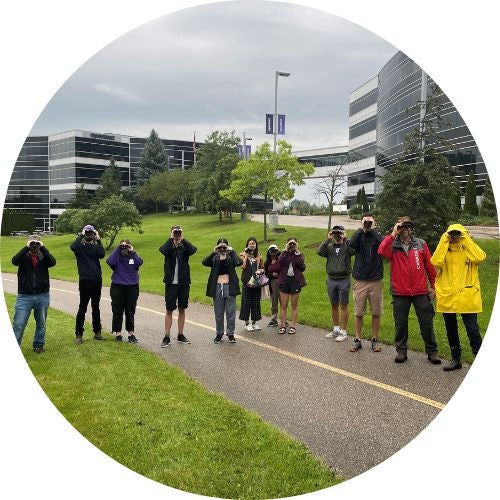
BioBlitz
This project supported a 24-hour BioBlitz event to conduct a biodiversity assessment on Waterloo's south campus. The event included 9 guided hikes on a variety of species, as well as opening ceremonies and booths from campus and community partners. Over 300 species were identified and close to 900 observations made on the iNaturalist platform. Led by the Sustainability Office (winter 2023)
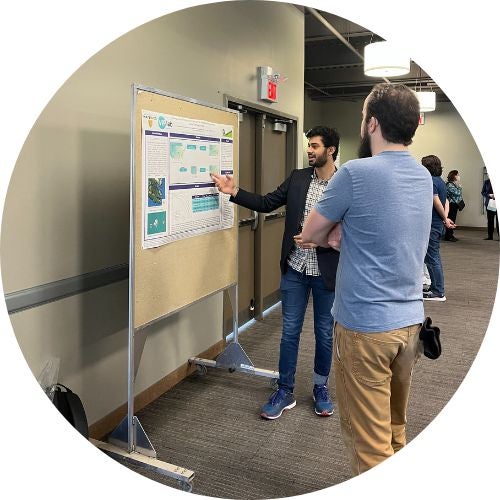
Climate Students Conference
This project supported the inaugural Climate Students conference in April 2023, a student-focused conference to spark cross-disciplinary solutions and collaborations to tackle climate change. The conference offered a ‘green’ knowledge-exchange hub through keynote speakers and oral and poster presentations. Led by Climate Students (winter 2023)
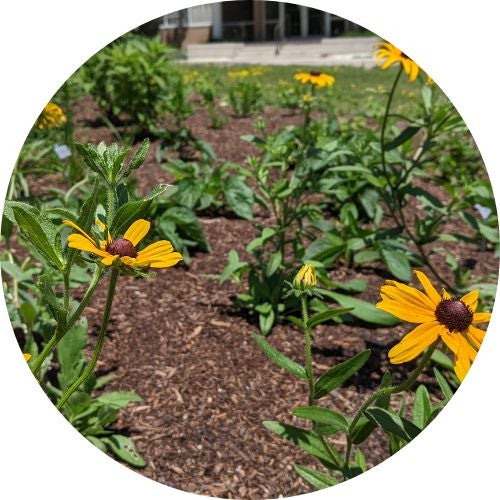
Conrad Grebel Pollinator Garden
This project supported the planting of an 850 square foot garden at Conrad Grebel College, consisting of plants native to Ontario’s tallgrass prairies. The project engaged over 70 campus community members and serves as a community-building feature. Led by Conrad Grebel employees (winter 2023)
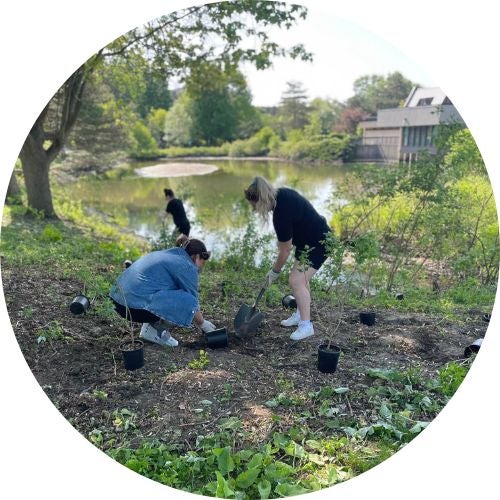
Green Office Tree Planting
This project supported the planting of a variety of 200 native trees/shrubs and 200 native perennials along Laurel Creek on main campus and North campus, engaging many employees from the Green Office program and other employee/student volunteers. Led by Grounds and the Sustainability Office (winter 2023)
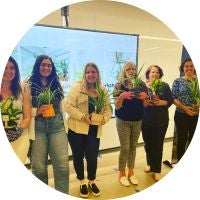
Healthy and Green Office Plant Project
This project offered a workshop for office participants to learn about potting and caring for plants in office and household settings. Led by Civil and Environmental Engineering and the Dean of Engineering Office, the project improved indoor greenery and served as a pilot to demonstrate benefits and how similar events could be run on other teams. Led by employees in the Faculty of Engineering (winter 2023)
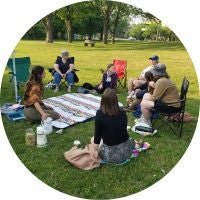
Land Skills for Wellness and Sustainability
This project offered a series of experiential learning opportunities where students, staff, and faculty engaged in direct experience of land skills nature and engagement, including green woodworking, basket weaving, scything, nature weaving, herbal tea making, and nature walks. Led by PhD student in the Faculty of Environment (winter 2023)
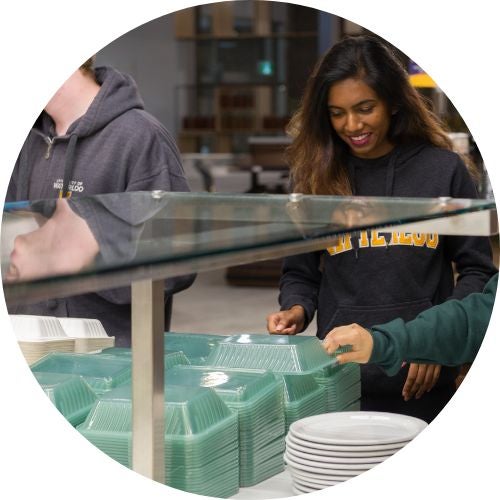
Supporting Eco Containers in Residence
This project expanded the eco-container program in residences by providing on incoming students on a traditional meal plan with a reusable container. Led by Food Services (winter 2023)

Theatre and Performance Sustainability Action Plan Workshops
This project hosted workshops and guest speakers to develop an action plan for improving sustainability in the Theatre and Performance department. The project aimed to tackle waste generation and other unsustainable practices in the theatre industry while increasing awareness for students. Led by faculty in the Faculty of Arts (winter 2023)
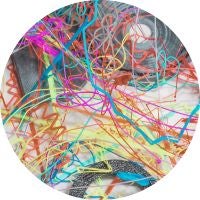
3Cycle
This project supported an ongoing project with equipment for collecting, grinding, and re-filamenting scrap from 3D printers across campus, which is a growing source of waste. Led by 3Cycle (fall 2022)
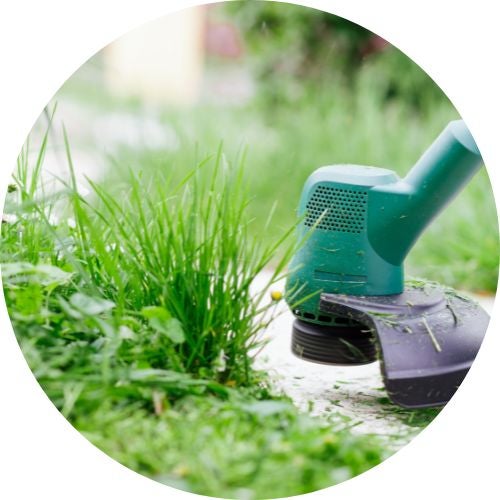
Electric Landscaping Equipment Pilot
This project supported the purchase of new electric hedge trimmers and line trimmers for use in campus operations, reducing emissions, noise, and other air pollutants. Learnings from the pilot will inform future purchasing decisions for Plant Operations. Led by Grounds (fall 2022)
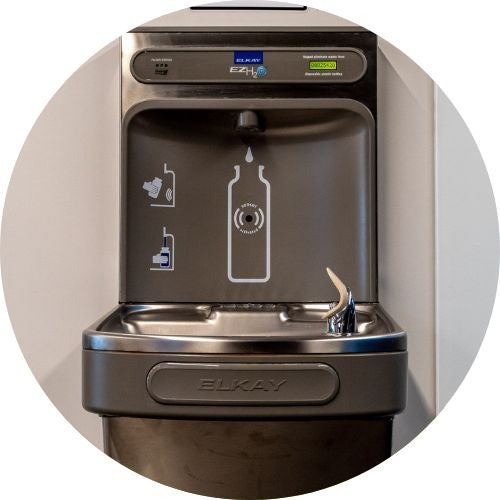
RAC Hydration Station
This project supported the installation of a water bottle refill station in RAC to support waste reduction for employees on North Campus. (fall 2022)
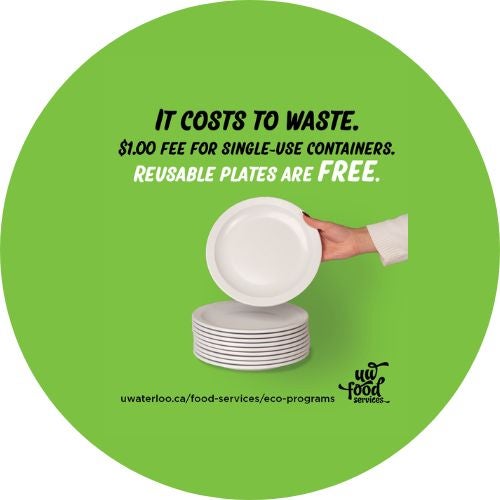
Reusable Containers Marketing
This project expanded marketing and communication efforts in promotion of the existing eco-container and eco-mug programs, in collaboration with Housing and Food Services, to help expand participation. Led by Plant Operations - Custodial Services (fall 2022)

Status of Sustainability Infosheets
This project supported the development of a series of fact sheets and background materials about ways in which sustainability topics and issues are connected to Civil and Environmental Engineering. It identified best practices on how these are being built into curriculum and to inspire both instructor sand students to integrate in learning opportunities. (fall 2022)

Campus Housing Waste Diversion
This project built off historical efforts to encourage waste diversion in move-out and move-in programming, pulling together supplies, small appliances, dishware, and other household items during move-out that can be given away for free to incoming students. Led by Campus Housing (spring 2022)

North Campus Garden Supports
This project supported the replacement of a shed and additional tools for community gardens that are located on North Campus near the Columbia Lake greenhouse. The gardens supported a wide range of student, employee, and broader community gardeners to grow food on campus. Led by student in the Faculty of Health (spring 2022)
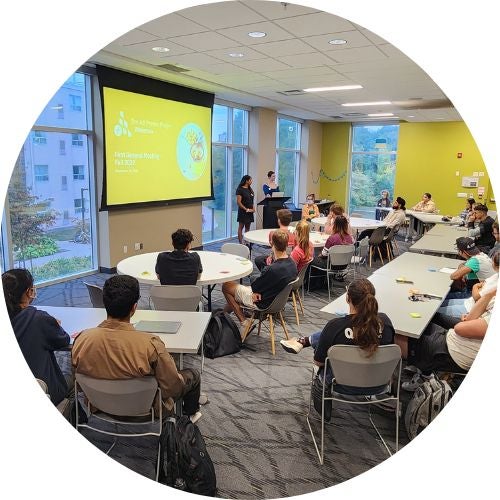
Alt. Protein Project
This project supported the student-led Alt. Protein Project in a series of workshops and educational activities to generate excitement and awareness around alternative proteins, empower student entrepreneurs, and promote open-access research. Led by Alt. Protein Project student group (winter 2022)
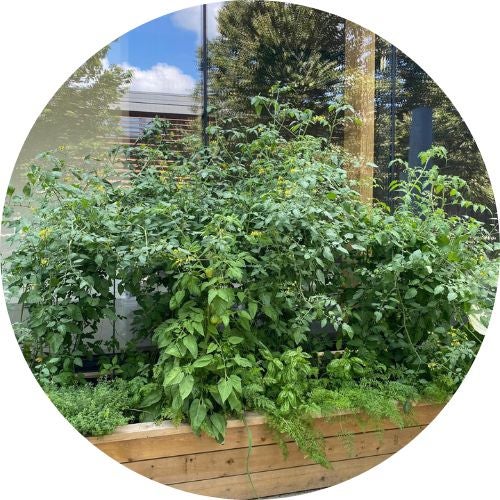
BSIA Community Garden
This project supported the design and installation of a food garden plot at the Balsillie School of International Affairs in Uptown Waterloo. The garden gives students and members of the BSIA community access to land where they can grow fresh produce and reconnect with nature. Led by Balsillie School Climate Action Committee (winter 2022)
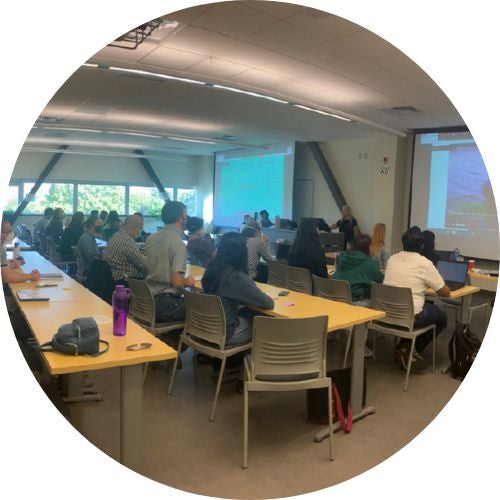
Sustainability Literacy Conference
This project supported a student-led and focused conference in fall 2022 on how to embed sustainability literacy throughout the curriculum, in order to support all students in being prepared for and contributing toward a sustainable future. Led by Sustainability Literacy Initiative (winter 2022)
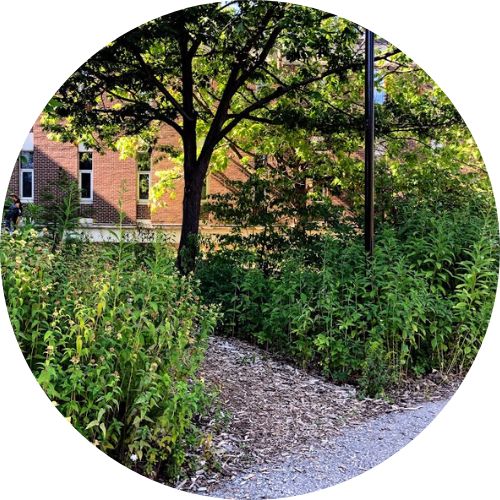
Assessing Biodiversity and Ecosystem Health
Building off the Eco-Maps project, this Living Lab project engaged students and other stakeholders in conducting species inventory to better understand, centralize, and communicate Waterloo's natural diversity and areas in need of further support. This is the second phase of a long-term and ongoing monitoring project. Led by instructors in the Faculty of Environment (fall 2021)
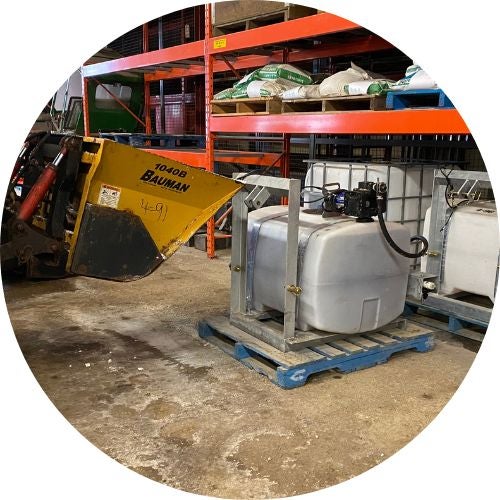
Salt Brining Pilot Project
This project piloted the installation of a new brining tank and dispersal system to reduce the amount of salt applied across campus. The project installed the equipment for vehicles as well as a station to create the brine, and allows for more even distribution of a de-icing solution that uses less salt overall. Led by Grounds (fall 2021)
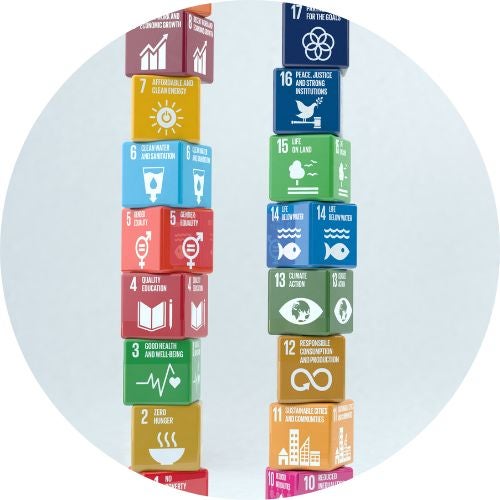
SDG Impact Challenge
Led by the Impact Alliance, this hackathon engaged youth in designing solutions to real, meaningful challenges related to the UN Sustainable Development Goals. Building off a successful project in 2021, the hackathon explored different sustainability challenges and gave over 70 participants an opportunity to learn more about the SDGs and connect with others who are passionate about solving social, economic, and environmental problems. Led by Impact Alliance (fall 2021, completed winter 2022)
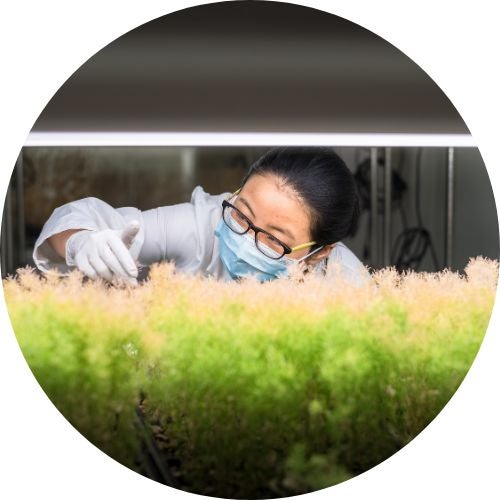
Biology Growth Chamber
This project supported more efficient LED lighting integrated into the design and fit-out of a new growth chamber in biology. The walk-in chamber supports student learning and research, and the lighting will significantly reduce power consumption. Led by Faculty of Science (spring 2021)

Fleet Telematics Pilot
This project piloted the installation of telematics devices and software in a subset of campus fleet vehicles. These helped identify opportunities for driver behaviour changes to improve fleet efficiency and reduce fuel consumption, highlighted opportunity and business cases for conversion to electric vehicles, and assisted with general fleet management. Led by Grounds, with support from the Sustainability Office (fall 2020)
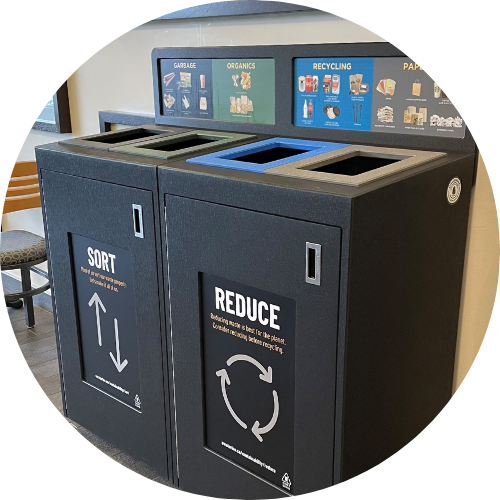
Library Waste Receptacles 2
This project continued the deployment of standardized waste receptacles across the Dana Porter Library and completed the retrofit of the new bins. Led by the Library (fall 2020)
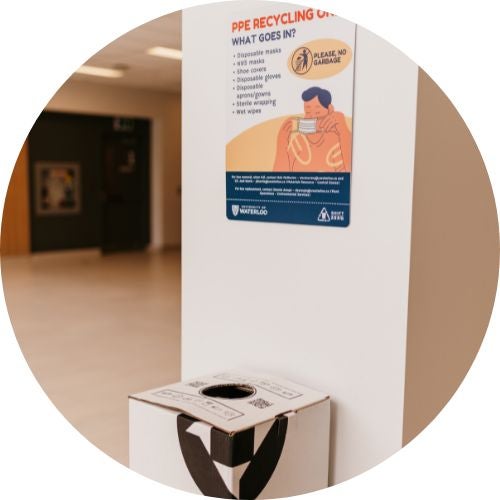
PPE Zero Waste Program
This project diverted significant amounts of personal protective equipment generated by University of Waterloo clinics. Recognizing the impact of COVID-19 in generating significantly more disposable masks and gloves in clinical settings across campus, a program was established to properly recycle these materials and divert them from landfill. Led by Plant Operations - Custodial Services (fall 2020)

SDG Impact Challenge
This project supported a hackathon based on the UN Sustainable Development Goals. As a student-led project, it engaged peers across campus in efforts to education on the SDGs and provided partnerships and opportunities to critically engage with SDG related challenges. Led by Impact Alliance (fall 2020)
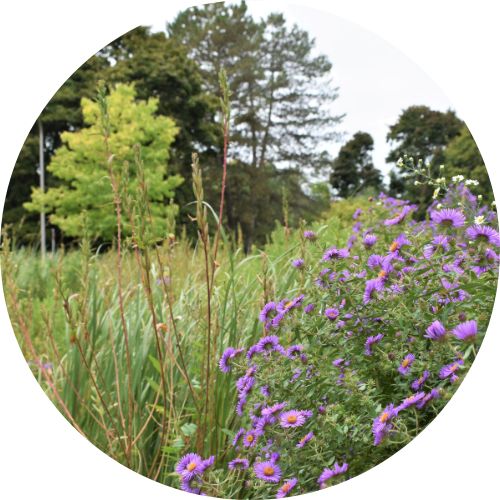
Stewardship UW: Campus EcoMap
This Living Lab project engaged students in an exercise to develop a baseline of plant species in major ecosystems across the University of Waterloo's grounds. This will feed into the development of Waterloo's landscaping standard and biodiversity assessment, and became an open access inventory and database which can be embedded into coursework and research over time. (fall 2020, first phase completed spring 2021)
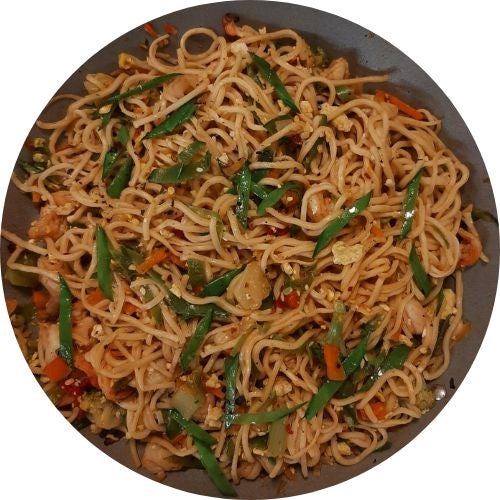
Sustainable Cooking in Residences Workshop
This project supported a series of student-led workshops aimed at building sustainable cooking skills throughout winter 2021. These targeted students living in residences and focused on peer-peer knowledge sharing on making healthy, sustainable meal choices. Led by Campus Housing don (fall 2020)

WUSA Secondhand Store
This project supported the purchase and installation for a washing machine and dryer as part of the launch of a secondhand clothing store by WUSA. The store expanded on the ad-hoc successful clothing sales and provides a permanent space in the SLC for used clothing to reduce waste and provide access to affordable clothing options. Led by WUSA (fall 2020)
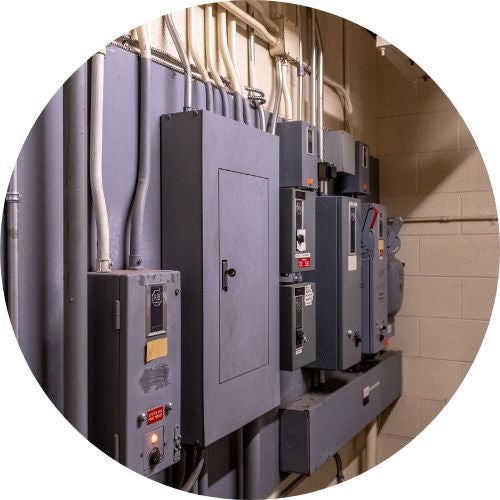
Campus Energy Audit
This project engaged an external energy services firm to complete a comprehensive audit of all University of Waterloo facilities. As part of the Shift: Neutral climate action plan, this built a more complete understanding of energy distribution across the campus and compiled a list of renovation and operational projects to reduce energy consumption and greenhouse gas emissions. Led by Plant Operations (fall 2019)
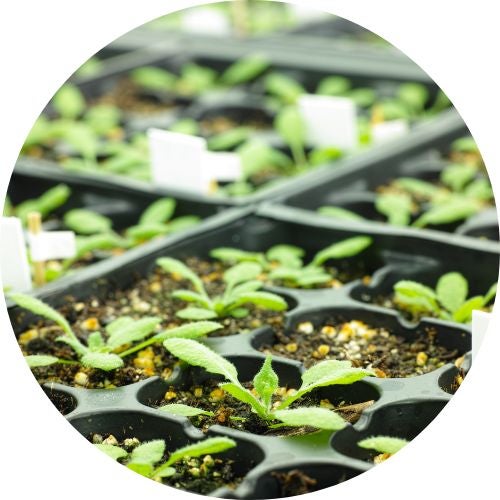
Biology Growth Chamber Retrofit
This project improved the teaching environment while substantially reducing energy consumption within 2 of the growth chambers used by the Department of Biology. Major retrofits to LED lighting and a building-integrated cooling system reduced the energy consumption and chemicals needed to operate the facilities, and was used as a demonstration project for students completing their studies. Led by Faculty of Science (fall 2018)
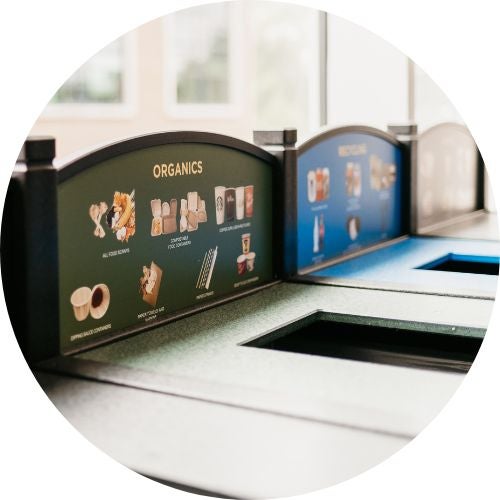
Campus Waste Sorting Improvement
This Living Lab project worked with student researchers to complete applied research to identify the most efficient combination of messaging and signage to encourage proper waste sorting. The project piloted signage and various normative messages at several waste sorting stations and completed before/after waste audits to determine recycling behaviours and contamination. The signage designs and findings will be standardized across campus. Led by faculty and students within SEED (fall 2018, completed winter 2019)
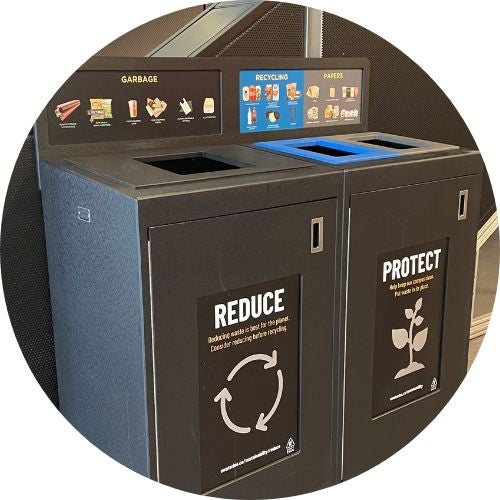
Engineering Waste Receptacles
This project supports expansion of standardized recycling infrastructure to hallways and common spaces throughout Engineering 5, 6, and 7. Partial funding is provided from the Sustainability Action Fund, with Engineering providing funding support as well. Led by Faculty of Engineering (fall 2018, completed spring 2019)

Lobby Waste Receptacles
This project expanded the standardized waste infrastructure to hallways and lobbies across campus. As part of an ongoing update to the waste stations, the standardized bins ensure proper sorting and waste separation. Led by Plant Operations - Custodial Services (fall 2018)
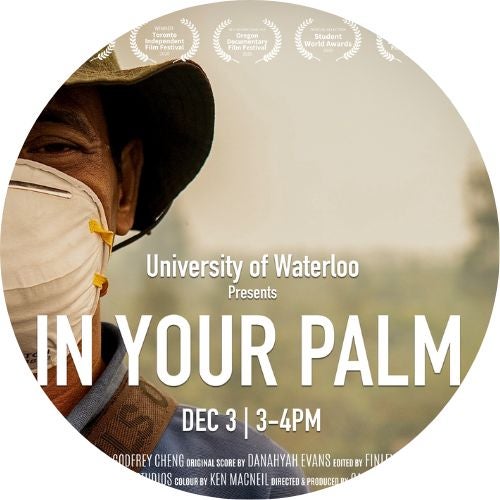
Palm Oil Project
This student-led documentary was filmed in Indonesia to educate on the health and environmental impacts of palm oil production, and efforts underway to produce palm oil more sustainably. A virtual screening took place at the University of Waterloo after completion in fall 2020. Led by student filmmaker from Faculty of Environment (fall 2018)
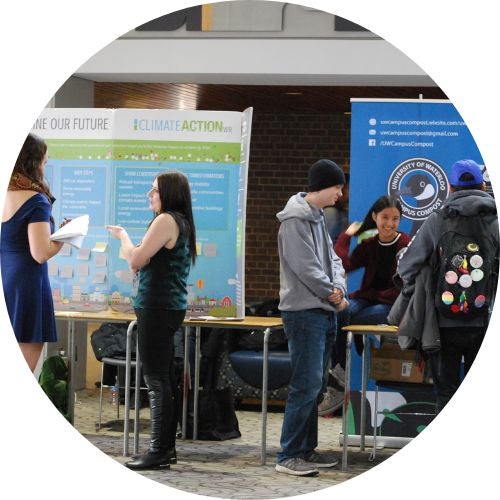
SCI Day
This student-led conference engaged more than 100 students from across campus on a series of sustainable living workshops and presentations, encouraging involvement on campus and in their personal lives. The conference had a theme around career pathways in sustainability, and featured speakers from local non-profits, entrepreneurs, government agencies, research institutes, and the Indigenous Student Association. Led by Sustainable Campus Initiative (fall 2018, completed winter 2019)
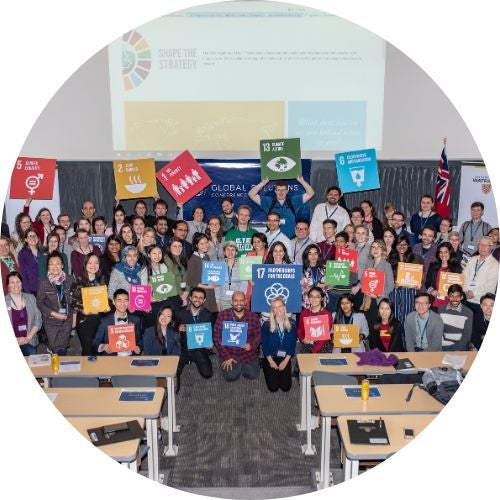
SDG Youth Training
This student-led conference engaged students from across campus on the role that youth can and do play in achievement of the UN Sustainable Development Goals (SDGs). With partnerships on-campus and in the community, attendees participate in a day-long series of panels and workshops to encourage action and provide skills and resources to enable change to accelerate the global SDGs. Information about the conference is available on the conference website, as well as the video summary. Led by Impact Alliance, and supported by the Sustainability Office (fall 2018, completed winter 2019)
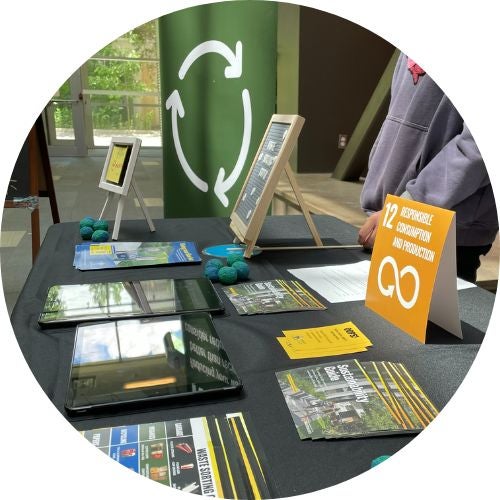
Waste Management Promotional Campaign
This project supported efforts to educate users on proper waste sorting on campus. It included a mix of promotional signage, posters, video production, events, and other activities to improve recycling and composting, while reducing contamination. Led by Plant Operations - Custodial Services (fall 2018)
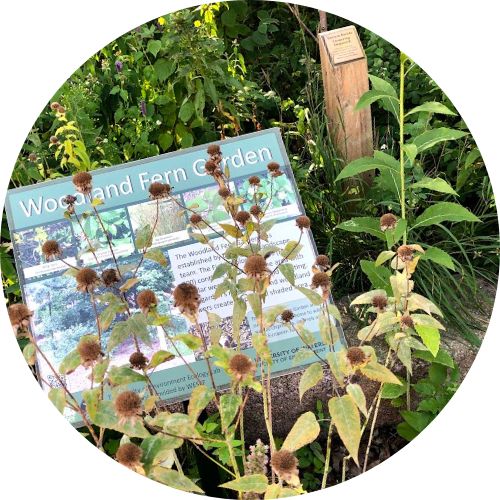
Arts/Environment Gardens Signage
This project educated users on the unique naturalized and native species features of the Arts-Environment Gardens in between PAS, HH, and EV1. The gardens feature native and non-invasive species across seven themed plots, and the new signage creates interactive information to inform users of the space about sustainable landscaping practices. Led by Faculty of Arts, Ecology Lab (spring 2018)
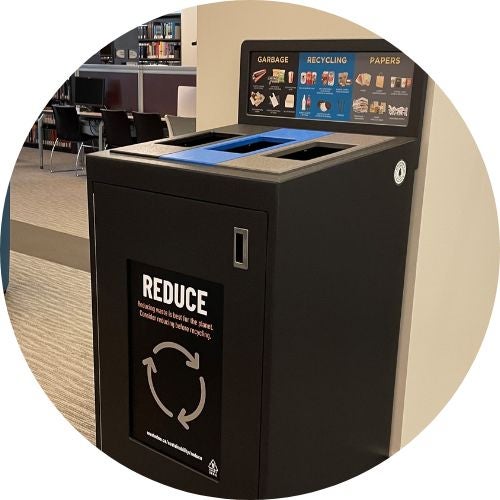
Library Waste Receptacles
This project supported expansion of Waterloo's new universal waste standard into Library locations in Davis Centre and Dana Porter. As a major traffic area for students, the libraries offer a strong opportunity to support waste reduction efforts. Led by the Library (spring 2018, completed winter 2019)
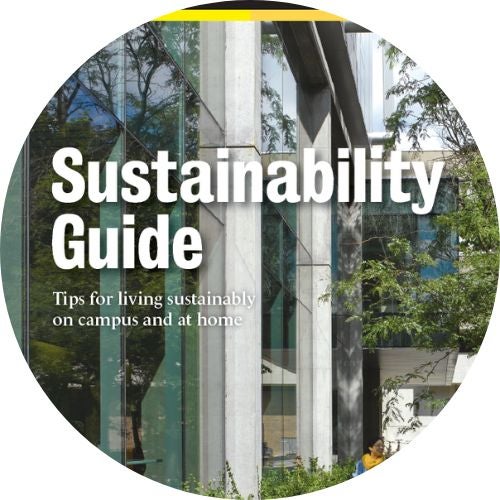
Sustainability Guide
This project ensured all incoming students had the opportunity to receive information about sustainability as part of their orientation kits. All first-year students received postcards linking to the online Sustainability Guide, which lists programs, services, and tips to support sustainable living. Led by the Sustainability Office (spring 2018, completed fall 2018)
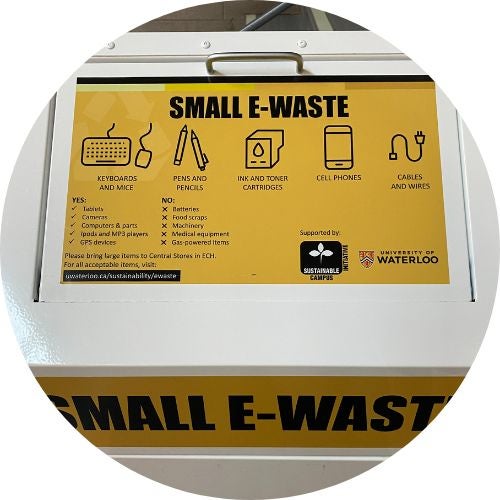
E-Waste Collection Stations
This project launched three new collection stations to make it easier for employees and students to properly recycle their electronic waste. The SAF covered the purchase of the new stations, which are serviced by Waterloo's Central Stores team. Led by Sustainable Campus Initiative (fall 2017, completed winter 2018)
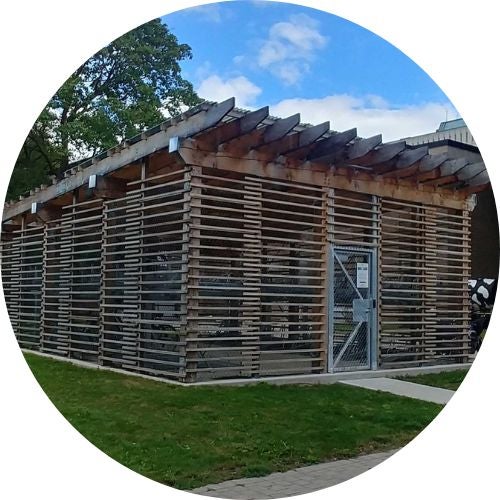
Secure Bike Cage
This project developed a bike cage with secure access near the motorcycle parking beside EV3 and ML. The cage holds over 50 bikes and was launched in Fall 2021. SAF funding built momentum for project development. Led by students from the Faculty of Environment (fall 2017)
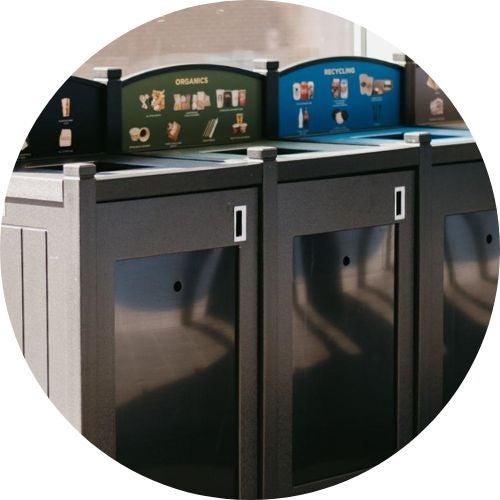
Waste Station Expansion
This project supported the launch of standardized waste receptacles at Food Service locations across campus as the foundation for user-friendly, attractive, and well-designed waste stations across campus. The program also facilitated public organics collection in key areas. SAF funding supported a portion of implementation costs. Led by Plant Operations - Custodial Services (fall 2017, completed spring 2018).

Water Bottle Refill Stations
This project launched a new water bottle refill station in the Columbia Icefield gym to encourage reusable water bottle use and provide feedback by tracking usage. The SAF covered the station and installation costs. Led by Sustainable Campus Initiative (fall 2017, completed winter 2018)